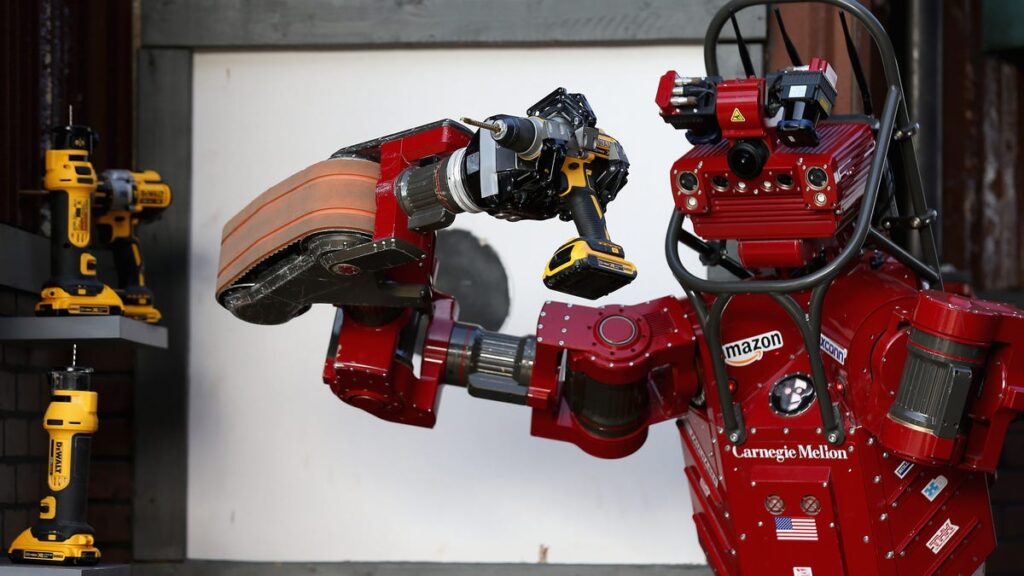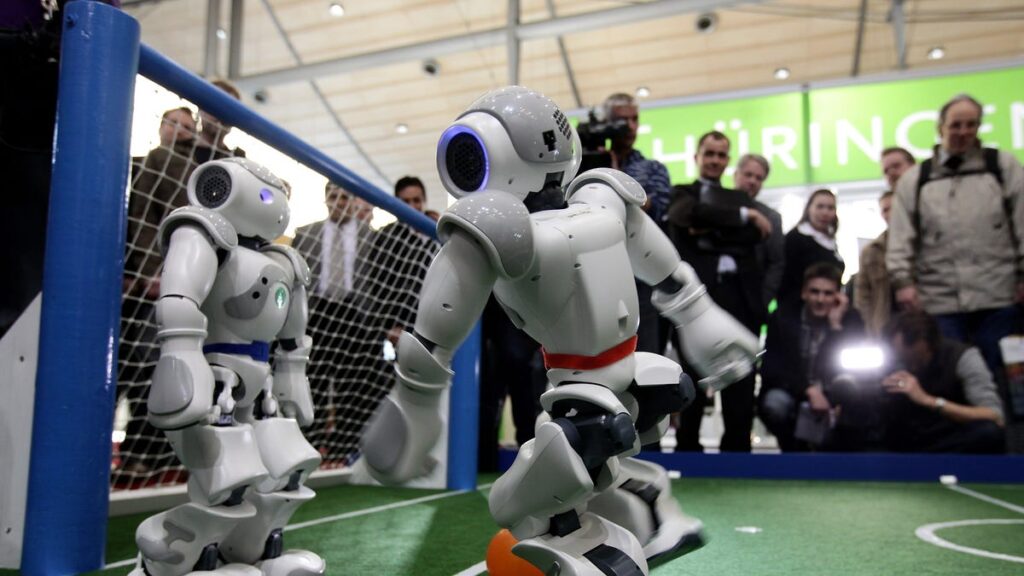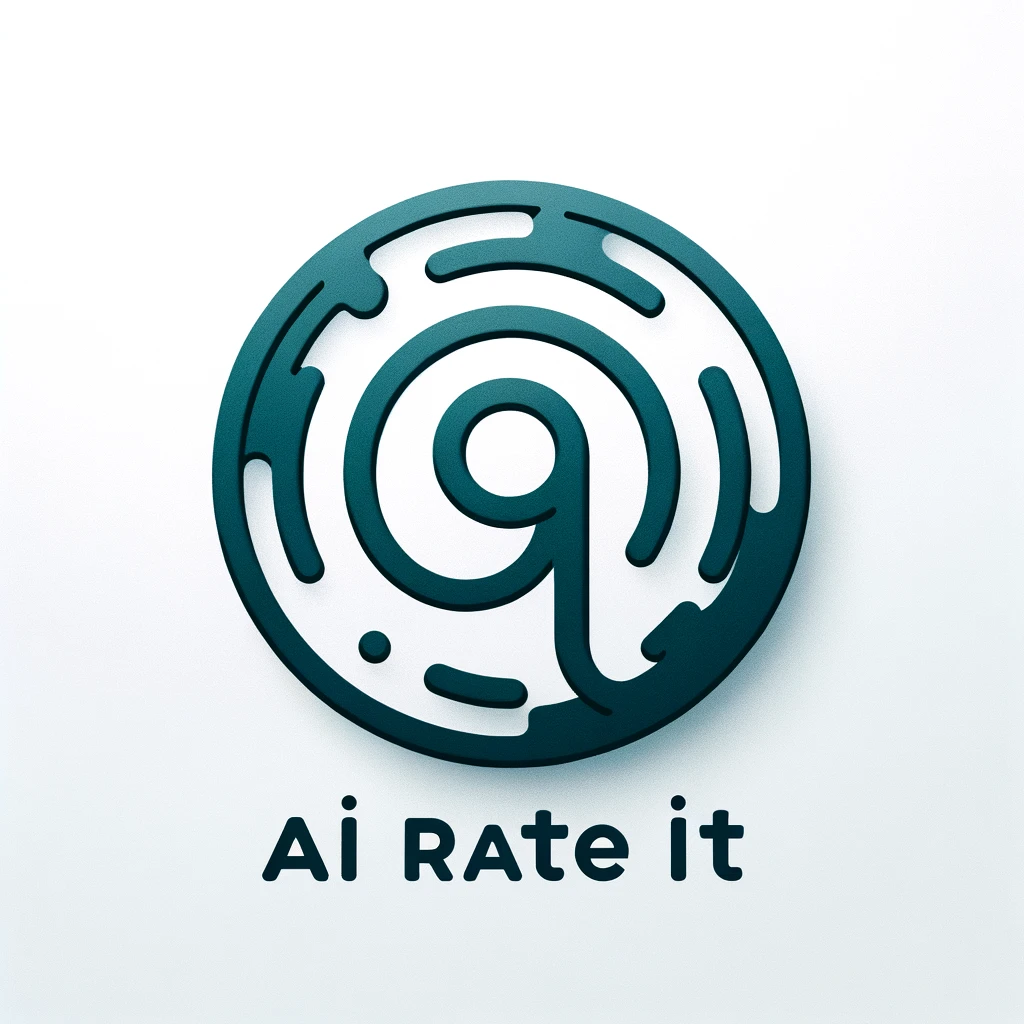Imagine a world where artificial intelligence (AI) is not just a helpful tool, but has the ability to surpass human intelligence in certain tasks. Some experts believe that day has already arrived in areas such as chess and legal analysis. However, when it comes to predicting when AI will outsmart humans in every aspect, opinions vary. While AI may be capable of certain tasks within the next two years, the prevailing belief is that completely replacing all human labor with AI is a distant possibility, unlikely to happen in this century. Regardless of the timeline, one thing is clear: AI platforms still have a long way to go in terms of understanding human nature and making complex decisions. Yet, the raw processing power of AI is undeniable and some experts are convinced that it’s only a matter of time before AI inevitably outsmarts humans. With this prospect comes debates about the potential dangers and ethical considerations of AI, but responsible development and deployment of AI have the potential to greatly enhance human productivity and performance, rather than replacing human workers entirely. The key is to foster transparency standards, open sourcing foundational models, and implementing policy safeguards to ensure the responsible development and deployment of AI.
AI Surpasses Humans in Chess
In recent years, there has been a significant breakthrough in the field of artificial intelligence (AI), with machines surpassing humans in various tasks. One prominent example of this is in the game of chess, where AI has demonstrated its superiority over human players. Experts in the field have marvelled at the advancements made by AI systems in playing chess, further highlighting the potential of this technology.
Expert opinions on AI surpassing humans in chess
Renowned chess grandmasters and AI experts have shared their opinions on the topic, shedding light on the capabilities of AI in the game of chess. Many of these experts acknowledge that AI has already surpassed human players in terms of tactical prowess and strategic thinking. The ability of AI systems to analyze countless moves and foresee outcomes has given them a significant advantage over their human counterparts.
Advantages of AI in playing chess
The advantages of AI in playing chess are evident. Unlike humans, AI systems do not experience fatigue or get overwhelmed by the complexity of the game. The raw processing power of AI allows it to calculate moves and evaluate positions with extreme precision and speed. This enables AI to exploit mistakes in human gameplay and make optimal decisions consistently, ultimately resulting in a higher level of play.
Debates on the potential dangers and ethical considerations surrounding AI in chess
As AI continues to push the boundaries of human capabilities in chess, debates have emerged regarding the potential dangers and ethical considerations associated with this technology. Some individuals express concerns that reliance on AI in chess could stifle human creativity and intuition. Others worry about the potential for AI to be used unethically or to gain an unfair advantage in competitive chess events. These debates highlight the need for responsible development and deployment of AI in the chess world.
AI Surpasses Humans in Legal Analysis
Alongside its advancements in chess, AI has also showcased remarkable abilities in legal analysis. By utilizing machine learning algorithms, AI systems have demonstrated their aptitude for processing vast amounts of legal information and extracting valuable insights. Experts in the field have taken notice of these advancements, sparking discussions on the implications of AI surpassing humans in legal analysis.
Expert opinions on AI surpassing humans in legal analysis
Legal experts and AI researchers have shared their viewpoints on the growing capabilities of AI in legal analysis. Many agree that AI systems are now capable of conducting legal research and performing tasks that traditionally required human expertise. The ability of AI to rapidly analyze and cross-reference legal databases and case histories has proven invaluable in enhancing the efficiency and accuracy of legal analysis.
Advantages of AI in legal analysis
The advantages of employing AI systems in legal analysis are numerous. AI is able to sift through immense volumes of legal information in a fraction of the time it would take a human. This not only reduces the burden on legal professionals but also enables them to access relevant legal precedents and insights more efficiently. Additionally, AI’s ability to identify patterns and correlations within legal data can result in more comprehensive and persuasive arguments.
Debates on the potential dangers and ethical considerations surrounding AI in legal analysis
As AI increasingly encroaches upon the domain of legal analysis, debates arise surrounding the potential dangers and ethical considerations associated with this technology. Concerns have been raised about the potential bias within AI systems, as well as the implications of granting AI the responsibility of making legal judgments. The legal profession must carefully navigate these ethical considerations to ensure that the implementation of AI in legal analysis is fair and just.

Survey of AI Experts
To gain a broader perspective on the capabilities of AI and its future ramifications, a survey was conducted among AI experts. This survey aimed to evaluate differing opinions on when AI will outsmart humans in various fields and to explore the consensus on the timeline for complete replacement of human labor with AI.
Differing opinions on when AI will outsmart humans
The survey revealed differing opinions among AI experts regarding the timeframe for AI surpassing humans. While some experts believed that AI has already outsmarted humans in certain tasks, others expressed a more cautious approach, suggesting that the complete outsmarting of humans may take longer to achieve. Nevertheless, there was a shared belief that AI will continue to advance rapidly and reshape various industries.
Consensus on more distant timeline for replacing all human labor with AI
When it comes to the replacement of human labor with AI, the majority of experts in the survey agreed that it is a more distant possibility. Despite AI’s rapid advancements, experts highlighted the complexity of tasks that require human intuition, creativity, and emotional intelligence. Many emphasized the importance of augmenting human capabilities with AI rather than fully replacing human workers, arguing that a collaborative approach would yield the greatest benefits.
Complexity of AI Tasks
While AI has demonstrated great success in specific tasks, it is essential to recognize the complexity and limitations of AI systems. Certain tasks, such as understanding human nature and making complex decisions, pose significant challenges for AI platforms.
AI platforms requiring significant data and training for complex tasks
AI platforms are heavily reliant on enormous amounts of data and extensive training to perform complex tasks. While AI can process and analyze structured information efficiently, understanding the nuances of human behavior and decision-making requires comprehensive datasets and continuous learning. This limitation highlights the need for ongoing research and development in AI.
Limitations in understanding human nature and making complex decisions
Despite AI’s impressive analytical capabilities, there are fundamental aspects of humanity that AI struggles to comprehend. Complex decisions, particularly those influenced by emotions and intuition, are challenging for AI systems to replicate accurately. Human judgment and empathy are domains where human intelligence continues to outshine AI, highlighting the irreplaceable value of human perspective in decision-making processes.

Advantages of AI over Humans
The advantages that AI holds over humans are significant and cannot be overlooked. It is important to recognize the strengths of AI as well as the potential impact on various industries and everyday life.
Raw processing power of AI
One of the major advantages of AI lies in its raw processing power. AI systems can analyze vast amounts of information at a speed that surpasses human capabilities. This allows AI to quickly identify patterns, make predictions, and generate insights that would take humans significantly longer to accomplish. The ability to process information at this scale provides a distinct advantage in terms of efficiency and problem-solving.
Inevitability of AI outsmarting humans according to some experts
Some experts believe that AI’s continuous advancement and the increasing complexity of tasks it can handle make it inevitable that AI will eventually outsmart humans. They argue that AI’s ability to learn and improve itself, coupled with its enormous computational abilities, will lead to a point where humans are surpassed in almost all intellectual domains. While the timeline for this remains uncertain, the potential emergence of superintelligent AI prompts important discussions about its implications.
Debates and Ethical Considerations
As AI progresses and its capabilities expand, debates surrounding the potential dangers and ethical considerations associated with this technology become increasingly important.
Potential dangers and ethical considerations surrounding AI
There are legitimate concerns regarding the potential dangers and ethical considerations surrounding AI. The ability of AI to autonomously make decisions could have unintended consequences if not properly regulated or controlled. Issues such as bias, privacy, job displacement, and the concentration of power in the hands of a few must be addressed to ensure that AI is developed and deployed responsibly.
Concerns if AI falls into the wrong hands
If AI falls into the wrong hands, the consequences could be severe. AI has the potential to be misused for nefarious purposes, whether it be in cyber warfare, misinformation campaigns, or the erosion of privacy rights. Safeguarding against these potential risks requires comprehensive frameworks, regulations, and ethical guidelines to ensure responsible AI development and deployment.

Responsible Development and Deployment of AI
To mitigate potential risks and maximize the benefits of AI, responsible development and deployment of this technology must be a priority.
Exaggeration of fear of superintelligent AI
While concerns about superintelligent AI leading to a dystopian future exist, some experts argue that such fears may be exaggerated. They emphasize that responsible development and deployment of AI can greatly enhance human productivity and performance in a broad range of fields. By focusing on collaboration between AI and humans, rather than replacement, AI can augment human capabilities and achieve higher levels of efficiency and innovation.
Enhancement of productivity and performance through responsible AI development
Responsible AI development involves a holistic approach that considers ethical, social, and economic implications. By fostering collaboration between AI and humans, productivity and performance can be enhanced across various industries. Careful implementation of AI systems, along with regulations and ethical guidelines, ensure that the technology is used in ways that benefit society as a whole.
Augmenting Human Capabilities
The goal of AI development should always be to augment human capabilities rather than completely replacing human workers. By harnessing the strengths of both humans and AI, we can achieve synergistic outcomes.
Goal of augmenting human capabilities with AI
AI should be viewed as a tool to enhance human capabilities rather than a substitute for human workers. By automating repetitive tasks and empowering individuals with AI-driven insights, the potential for innovation and productivity is magnified. Augmenting human capabilities through AI enables problem-solving at an accelerated pace, allowing humans to focus on higher-level decision-making and creative tasks.
Avoiding complete replacement of human workers
While the capabilities of AI continue to expand, complete replacement of human workers remains a distant possibility. There are tasks that necessitate human touch, emotion, and intuition, which cannot be replicated by AI. Maintaining a balance between human and AI involvement ensures the preservation of human employment, as well as the continuation of human judgment and ingenuity in critical areas.

Transparency and Policy Safeguards
Transparency and policy safeguards are crucial in the responsible development and deployment of AI. These measures not only build public trust but also ensure that AI operates ethically and effectively.
Importance of transparency standards in AI development
Transparency in AI development is essential to address concerns about bias, fairness, and accountability. The algorithms and decision-making processes used by AI systems should be transparent and explainable. By understanding how AI arrives at its conclusions, we can identify and rectify potential biases or errors, ensuring that AI systems operate fairly and transparently.
Open sourcing foundational models and policy safeguards for responsible AI deployment
Open sourcing foundational models and policy safeguards is another crucial step towards responsible AI deployment. By sharing knowledge, best practices, and guidelines, the development and implementation of AI can be collectively improved. Open sourcing models and policies also allow for public scrutiny and input, promoting transparency and ethical decision-making.
In conclusion, AI has made significant strides in surpassing humans in tasks such as chess and legal analysis. While experts differ in their opinions on the timeline for complete replacement of human labor with AI, there is a growing consensus on the potential of AI to outsmart humans in various domains. It is crucial to recognize the complexity and limitations of AI systems, as well as the advantages they hold over human capabilities. Debates and ethical considerations surrounding AI’s potential dangers and responsible development are necessary to inform its proper deployment. By aiming to augment human capabilities, maintaining transparency, and implementing policy safeguards, we can harness the potential of AI to enhance productivity and performance while ensuring a responsible and beneficial integration of AI into our society.

